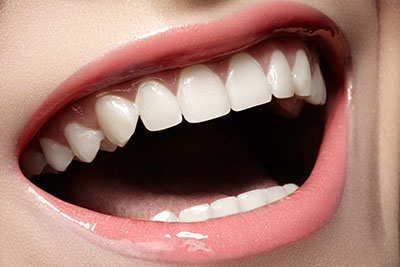Benefits of Caring for Your Teeth
 If you are worried about caring for your teeth after eating, you are not alone. Most people eat a meal or snack and feel guilty about not being able to clean their teeth or simply being too lazy to perform such a cleaning. However, those who prepare accordingly will never have to fret when out and about snacking, drinking and enjoying life.
If you are worried about caring for your teeth after eating, you are not alone. Most people eat a meal or snack and feel guilty about not being able to clean their teeth or simply being too lazy to perform such a cleaning. However, those who prepare accordingly will never have to fret when out and about snacking, drinking and enjoying life.
Here is a look at the basics of caring for your teeth in between meals.
Brush Half an Hour After Eating
Do not brush within 20-30 minutes of eating a meal or snacking. Rushing into the brushing session has the potential to damage the sensitive enamel. Instead, wait half an hour and give your teeth a good scrubbing. A timely clean is especially important following the consumption of foods and beverages containing sugars and/or carbohydrates. These particles lead to the creation of bacteria that attack tooth enamel.
Brush half an hour or so after eating and you will eliminate this nasty bacteria before the full attack occurs. Do not brush with any old toothpaste between meals. Choose a fluoridated toothpaste approved by the American Dental Association (ADA). The best toothpaste will combat tooth decay as well as the formation and settling of plaque. If you have any concerns about tooth decay and gum disease, go ahead and floss after each meal as well.
Rinse With Mouthwash or Water
If you cannot access your toothbrush, toothpaste and/or floss, go ahead and rinse your mouth out with water or mouthwash after consuming food or beverages. Rinsing with water or mouthwash will help wash away those harmful acids that would otherwise eat away at your tooth enamel.
Caring for Your Teeth Between Meals can be as Simple as dry Brushing
Some people prefer dry brushing without toothpaste to keep the chompers clean and fresh between meals. It will certainly help to use some water to moisten the bristles if you adopt this method for caring for your teeth between snacks and meals.
Alkaline Liquids are Worth a Try
Some have found success drinking alkaline fluids following meals. These liquids are less acidic compared to tap water on the pH scale.
Chewing Gum can Help
The days of sugar-laden gum that worsen tooth decay are coming to an end. Those unhealthy varieties of gum are quickly being replaced by sugarless gums with xylitol. Xylitol is essential to clean the teeth after consuming foods or beverages. Xylitol is a sweetener that promotes tooth remineralization. Remineralization is essential for the replacement of minerals at the fastest possible rate.
Aside from the gum's xylitol, the chewing process itself will spur the flow of saliva throughout your mouth. This movement of saliva is essential to remineralizing the teeth. Saliva assists in the recovery of teeth damaged when eating. So go ahead and chew on sugarless gum with xylitol for 20 minutes or so following your snack or meal. It just might prevent a cavity.
Call (256) 660-3233 to schedule an appointment with Smiles by Design, PC in our Huntsville dental office.
 If you are worried about caring for your
If you are worried about caring for your 
